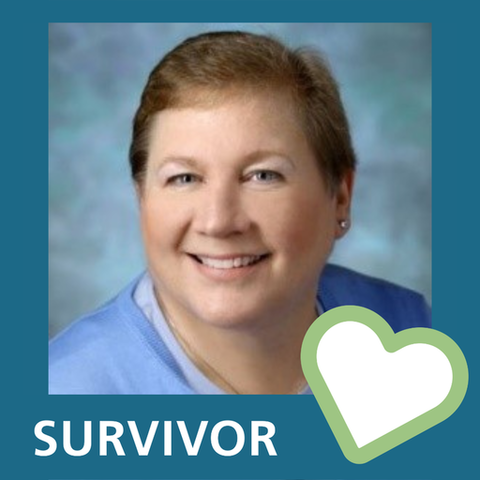Survivor Story: Breast Cancer Survivor, Lillie Shockney, Shares Stories of Caring for Father with Prostate Cancer

Lillie says, “To deliver ‘patient-centered care’ you have to know the patient well. Sometimes doctors need to be pushed to listen and understand what a patient needs. Treatment decisions should be based on how a patient wants to live.”
Lillie Shockney is a two-time breast cancer survivor and nurse navigator who brings a strong and grounding perspective to any cancer diagnosis. Her long history of helping patients with advanced cancer advocate for their lives includes helping her father. Among other titles, Lillie Shockney serves as a University Distinguished Service Professor of Breast Cancer at Johns Hopkins University School of Medicine, and founder of the Academy of Nurse Navigators.
When her father first found out he had prostate cancer, Lillie went into “nurse navigator mode”. She shared medical information he could understand. She found the best doctors he could work with. Most of all, she wanted to make sure he stayed in charge. Her dad was a proud first-generation German farmer who liked to be in control and wanted to continue to farm and feel like he had a purpose.
After radiation and many years of hormone therapy, her father was diagnosed with metastatic disease in his bones and the soft tissue of his abdomen. The specialist she found talked about his treatment options and side effects. Upon hearing this, her dad decided not to get treatment. He didn’t want to stop farming.
Lillie found herself telling the doctor that farming was of great value to her father. He was not ready to stop doing what he loved. She asked the doctor if he could work within her father’s life plan. This meant thinking about the farming seasons. The solution they found was to give him life-saving treatment during the summer and winter when his work was slow.
Lillie says, “To deliver ‘patient-centered care’ you have to know the patient well. Sometimes doctors need to be pushed to listen and understand what a patient needs. Treatment decisions should be based on how a patient wants to live.”
After cancer treatment slowed her father down, it began to depress him. At this point, Lillie shared a story from another metastatic patient. That patient taught her father to live each day with cancer or die each day with cancer. He had a choice. With this lesson and some time to process, he chose to live. Lillie strongly believes that this change of heart gave her three to four more years of life with her father.
As a final piece of wisdom, Lillie stresses that patients should consider palliative care (care given to improve the quality of life of patients) earlier in their cancer journey. She explains, “Palliative care is not about ‘giving up’. It’s about quality-of-life preservation or restoration.” Palliative care experts do what they can to help people manage their symptoms so a patient can live in harmony with their disease.
Learning from her own cancer journey, her father’s and others, Lillie shares a deep respect for people who are able to regain joy, laughter and purpose after cancer.
Hear more about Lillie’s story in this episode of the Urology Care Podcast.
To learn more, check out our collection of Survivor Stories on UrologyHealth.org.
Read more Survivor Stories here!
UrologyHealth.org | FALL 2022 | UROLOGYHEALTH extra